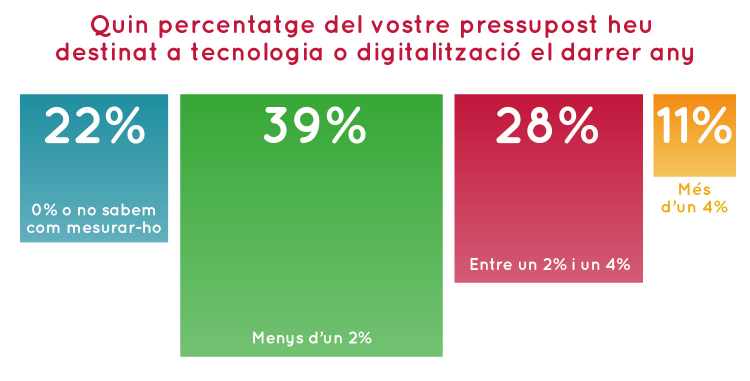According to data from the Barometer of the Table of Entities of the Third Social Sector of Catalonia in 2017, only 8% of the entities have someone responsible for innovation . Therefore, m4social publishes a new report that includes an exhaustive analysis to know the level of digital maturity of the Third Sector entities, to know how they use the technology and what needs they have to develop their innovative capacity.
Through this report, they wanted to know the evolution of the adoption of technology by Third Sector entities, identify and understand the main technological trends and establish specific actions.
They have adapted the Digital Checkup self-diagnosis tool , inspired by the questionnaire developed by the SCVO (Scottish Council for Voluntary Organizations) based on four pillars :
1. Organizational culture, leadership and talent . It refers to how we think, behave, and what decisions we make as an entity. Therefore, it is essential to know how the entities, technical teams and governing bodies are structured, the degree of digital training of the people, as well as the talent available in the organization to advance its degree of digitization.
2. Orientation to the user and to the sustainability of the entity . It refers to how data is exploited and used, what tools and resources they use, what technologies they are based on, key strategic approaches to improving the quality of care for people and to designing better services. by the groups they serve.
3. Computer security and data protection. It refers to how Third Sector entities deal with the security of the data they use and online threats, in order to preserve the security of their processes.
4. Communication. Marketing and digital content. It refers to the degree of digital maturity of the entities in terms of communication.
Main conclusions
Some key ideas in the report are:
- Improve data management of entities, taking into account the entire data life cycle. It is necessary to optimize the processes of data collection and exploitation and to advance interoperability between administrations and social entities, and between the social entities themselves.
- Address ICT from a strategic perspective and design digital transformation plans to better adapt to a changing context.
- Improve internal methodologies with the aim of creating a more innovative organizational culture that puts the person at the center.
- Adequate staff training in digital skills, knowledge and abilities.



